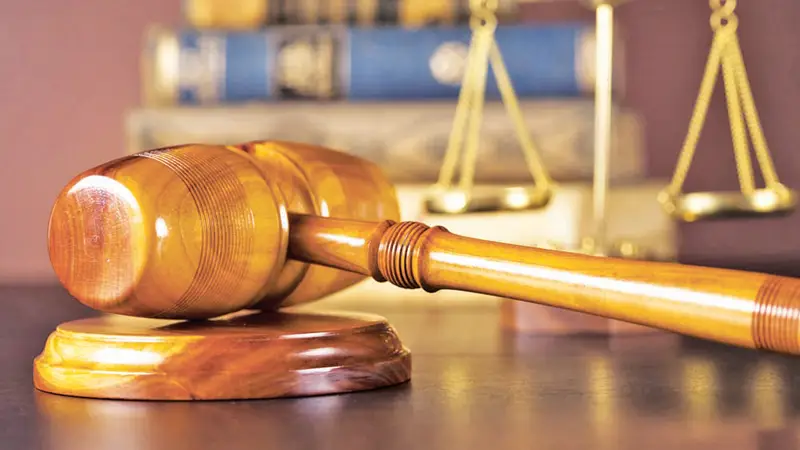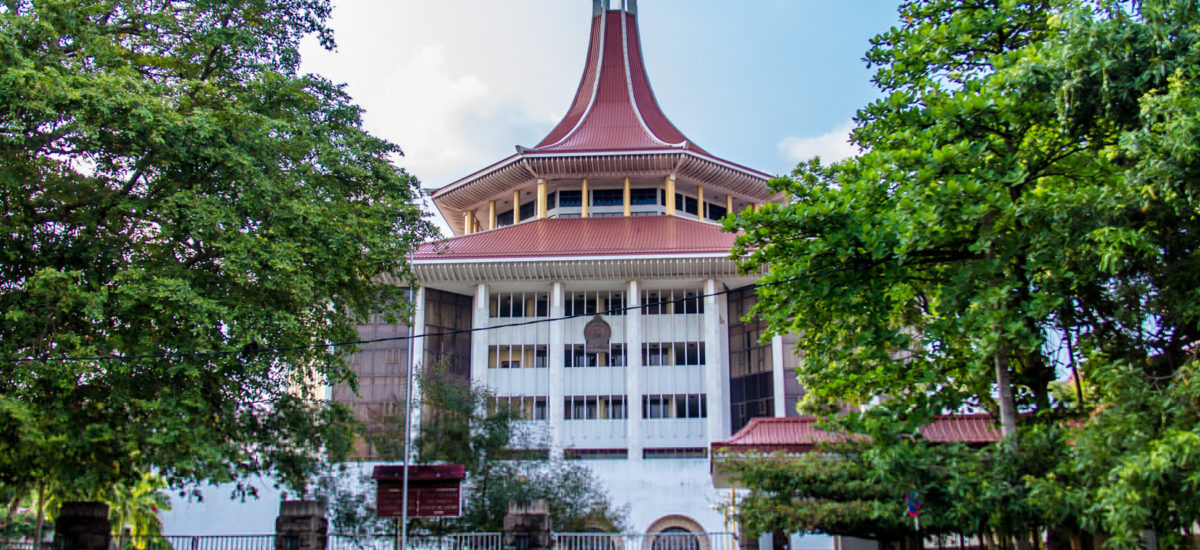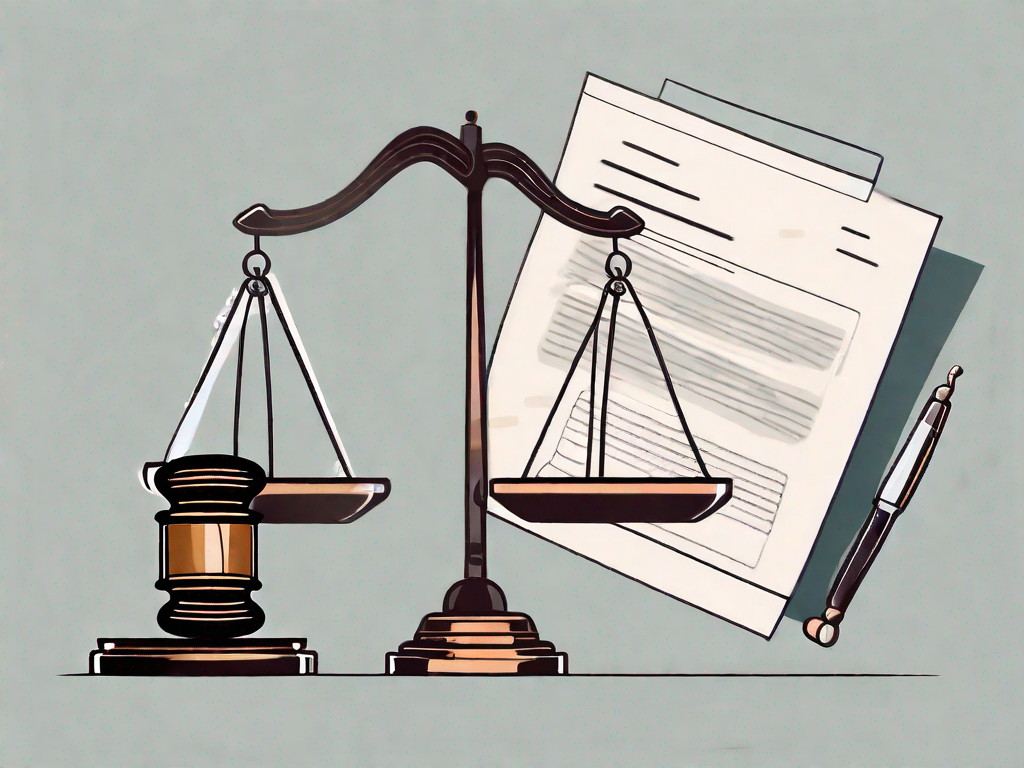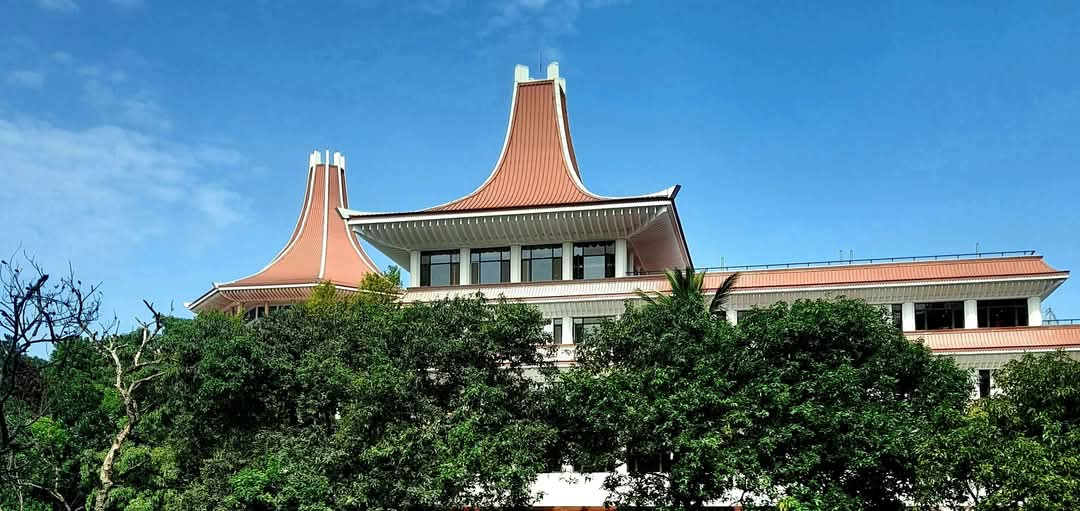Ordered to Pay Rs. 1 Million in CostsSupreme Court Finds Signature ForgedThe Supreme Court of Sri Lanka has suspended an attorney from practicing law for three years after finding that he filed a proxy and an answer on behalf of a guarantor in a loan dispute based solely on instructions from the borrower. The Court …
SC Suspends Attorney for Filing Proxy For A Guarantor Relying on Borrower’s Instructions

Ordered to Pay Rs. 1 Million in Costs
Supreme Court Finds Signature Forged
The Supreme Court of Sri Lanka has suspended an attorney from practicing law for three years after finding that he filed a proxy and an answer on behalf of a guarantor in a loan dispute based solely on instructions from the borrower. The Court determined that the attorney had failed to obtain direct instructions from the guarantor and acted on a proxy bearing a forged signature. Alongside the suspension, the attorney was ordered to pay Rs. 250,000 as state costs and Rs. 750,000 to the complainant, totaling Rs. 1 million.
The case involved a guarantor who discovered she had been named as a defendant in proceedings at the Commercial High Court. A proxy, filed on her behalf, contained a signature resembling hers, but she claimed she never authorized the attorney to act for her. Upon investigation, it was revealed that the attorney had filed the proxy and answer based solely on instructions from the borrower. The Attorney pleaded guilty to the Charges of the Rule before the Supreme Court.
The inquiry conducted by the Bar Association of Sri Lanka (BASL) and a government-appointed document examiner revealed that the signature on the proxy was indeed forged. The findings from the government’s questioned document report confirmed that the signature did not match the guarantor’s genuine signature, lending further credence to the complainant’s claim.
The Court highlighted the attorney’s professional failings, stating:
“…The Respondent admitted that he met the Borrower for the first time in his life on 15th March 2012 at around 9.15am outside All Saints Church, Hulftsdorp and that the Borrower signed the proxy by keeping it on the bonnet of his vehicle parked on the side of the road. Although the Respondent claimed that he maintained a law office of his own, his evidence clearly demonstrates that a public road is more than sufficient for him to obtain instructions and signatures of litigants. Quite apart from the lack of professionalism on the part of the Respondent and his admission of guilt to the Rule, the claim of the Respondent that the Complainant too met him and signed in his presence is false, for the simple reason that the impugned signature of the Complainant had been placed against the name of the 2nd defendant whereas the Complainant was the 3rd defendant. The version of the Respondent that he examined the National Identity Card of the Complainant also cannot be accepted as any such examination could not have taken place on a busy road where parking is not permitted. Thus, the Respondent tendered to the Commercial High Court a proxy fully aware that at least one of the signatures on the said proxy is not genuine…”
“The need for the Respondent to obtain instructions from each of the defendants cannot be overemphasized. The conduct of the Respondent in appearing for the Complainant without being retained by the Complainant has deprived the Complainant of the opportunity of placing her side of the story by way of an answer and giving evidence thereafter at the Commercial High Court.” – Justice Arjuna Abeysekere
Further, the attorney failed to inform the guarantor about the judgment, causing severe distress when enforcement proceedings were initiated against her.
The Supreme Court condemned the attorney’s conduct as “deplorable” and “unworthy of an Attorney-at-Law,” finding that he had violated Rules 60 and 61 of the Supreme Court (Conduct of and Etiquette for Attorneys-at-Law) Rules, 1988. While noting mitigating factors, such as the attorney’s health issues and clean record prior to this incident, the Court imposed a three-year suspension and financial penalties.
The Court directed the attorney to deposit Rs. 250,000 as state costs and Rs. 750,000 as compensation to the complainant in the Court Registry within 90 days.
| Case No | : | SC Rule No: 02/2021 |
| Before | : | Jayantha Jayasuriya, CJP. Padman Surasena, JArjuna Obeysekere, J |







